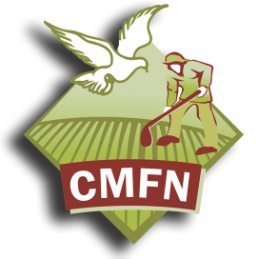Jesus Flores
The migrant communities together with the Church of Rochester New York walk together as pilgrims: Itinerants on the move harvesting crops in various venues. They are personas and families that have decided to establish themselves in a place where they faithfully work for an owner, and there they grow and their children attend schools.
The number of migrant workers has increased, especially those with the H2-A visas. They are generally men from Mexico who are contracted seasonally for only one owner.
The migrant and contracted farmworkers are a work force that vitalizes the agricultural economy of the rural counties. The work venues include fruit, especially apples, vegetables and vineyards that produce wine.
Agricultural workers who are residents work seasonally in fields and need to find other employment in winter. Some work in dairy farms and others in construction.
It takes a pastoral missionary who has the capacity and the freedom to accompany the migrant population. The accompaniment requires the desire and ability to find the invisible workers and begin a relationship of trust with them. It requires understanding their reality and the capacity to evangelize via solidarity measures, friendship, information and faith gatherings: liturgies, retreats and popular religious practices.
Then as relations develop especially among the permanent residents of the region, the task is to build community. Little by little the mission begins to promote leadership formation and making links among the dispersed communities. These immigrant communities are a seed for all rural communities.
We have formed an accompanying and collaborative missionary team. We encourage each other. We have more than ten years of organization and adapting services that are supported by the Diocese.
Personally, I have seen the increase of migrants at the US – Mexican border. I was born in Nogales Sonora and ordained for the Diocese of Hermosillo. There we came to know migrants coming from Central America. I now have lived twenty years in Up State New York.
During the most recent years which include the pandemic, our missionary commitment has brought us close to the farmworkers in the fields, orchards, vineyards and dairies. We’ve helped establish five communities made up of families and individual migrants who get together with the Anglo community to share their culture, their common catholic identity and to socialize. Each of these communities is coordinated by a local leader.
These are our many faces, from: Guatemala, Honduras, Nicaragua, El Salvador, Mexico, Venezuela, Ecuador and Haiti.
Con la Iglesia local de Rochester Nuevo York peregrinan las comunidades migrantes: itinerantes que se desplazan recogiendo la cosecha en diferentes estados, personas y/o familias que han decidido establecerse en un lugar y ahí trabajan leales a un patrón y ahí crecen y asisten a la escuela los niños.
Pero también han ido en aumento, los trabajadores con visa H2A, generalmente hombres de México, que llegan contratados por una temporada y por un solo patrón.
Los itinerantes [migrantes], y los contratados son fuerza de trabajo que vitaliza la economía agrícola de los condados rurales (fruta, especialmente manzana, vegetales y la uva para vino).
Los establecidos, un buen número se dedican a trabajos del campo que deben hacerse en el invierno, otros trabajan en los establos lecheros, que están activos todo el año. Trabajadores de la construcción.
Sólo una pastoral misionera puede acompañar a su propio ritmo a la población migrante. Esto supone una dinámica de buscarlos donde estén, implementar una primera tarea de conocimiento mutuo, entender su realidad y compartir el evangelio (acciones de solidaridad, amistad, información, o encuentros en torno a la Fe).
En otro momento, sobre todo con quienes se establecen en el área, la tarea es construir “comunidad” y poco a poco propiciar la formación de liderazgos y pequeñas redes. Son una semilla “eclesial” en las comunidades rurales.
Hemos formado un equipo Misionero y en colaboración acompañamos y nos animamos mutuamente. Tenemos más de diez años organizando y adaptando este servicio, apoyados por la Diócesis.
Personalmente, me toco conocer el incremento migratorio en la frontera México-USA. Nací en Nogales Sonora y me ordené para la Diócesis de Hermosillo, donde nos tocó acoger grupos venidos de Centroamérica. Hace veinte años que vivo en Up State NY.
Estos últimos años, incluso durante la pandemia, alternamos un trabajo Misionero que se acerca a los campos de trabajadores, y al mismo tiempo, promueve y organiza cinco comunidades formadas por familias y personas migrantes, donde se comparte la cultura, se convive y colabora con la comunidad Anglo local y se consolida la identidad católico-eclesial. Cada una de estas comunidades es coordinada por un agente de pastoral.
Estos son nuestros rostros: Guatemala, Honduras, Nicaragua, El Salvador, México, Venezuela, Ecuador y Haití…
